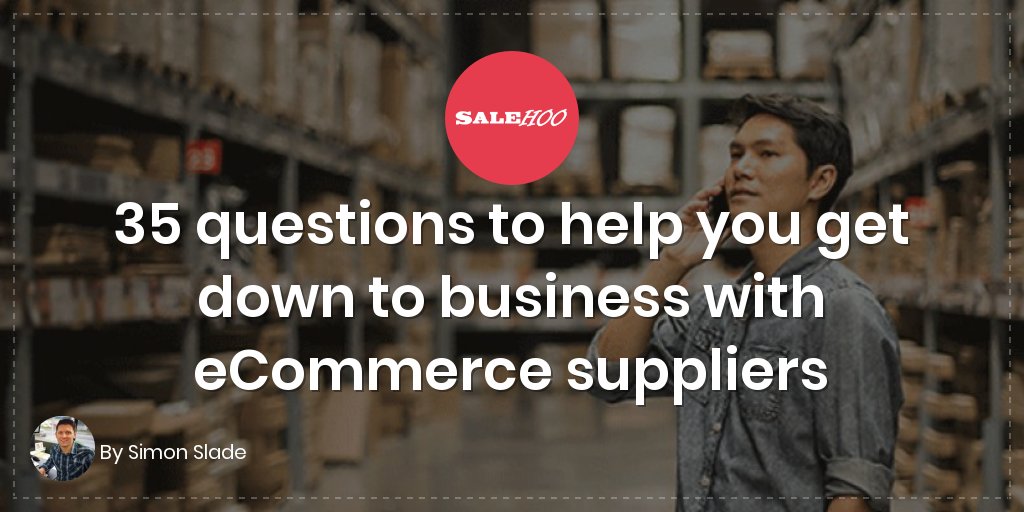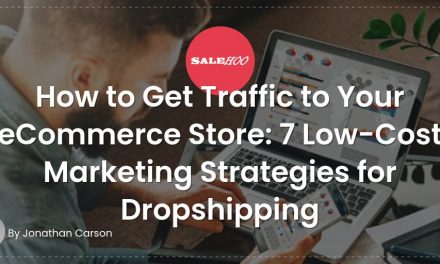No one likes to look stupid.
You’ve probably had times when you’re talking with a friend and the conversation moves onto a subject you know absolutely nothing about.
“You know what I mean, right?” your friend says.
“Um, yeah… totally,” you reply.
People often prefer to play along than admit that they’re out of their depth.
The same can be true in business. When you come across an eCommerce concept you don’t know or an issue you can’t handle, the ego rears its head and stops you from asking a “stupid” question.
You think that you should know the answer already. You’re afraid that asking for help might expose you as incompetent.
Whenever you feel uncertain, just remember this: There’s no such thing as a stupid question.
This famous phrase has stood the test of time for a reason. And it’s backed up by some seriously smart, successful people.
Multi-billionaire entrepreneur Tony Robbins said:
“Successful people ask better questions, and as a result, they get better answers.”

If you want to be a successful eCommerce entrepreneur, it’s important that you take this attitude into your business dealings with suppliers.
When you’re starting out, it’s critical to ask suppliers lots of questions. Even though you want to come across as a confident, competent business person, you can’t risk not knowing something.
The fact is, you’re more likely to look stupid when something goes wrong because you didn’t ask a question in the first place.
We’ve pulled together all of the must-ask questions you should put to suppliers before making them your business partner.
The list covers everything from their company history, to ordering, shipping, and support.
So what are you waiting for?.. Ask away!
The ultimate list of questions for eCommerce suppliers
Questions to check company background
So you want to make sure you’re dealing with a trustworthy supplier. But you want to do it without seeming distrusting or invasive. You can do a basic background check by searching the supplier’s business name on Google, checking the website, and reading customer reviews. But in order to verify a supplier properly, you’re going to have to ask them a few questions. If they’ve got nothing to hide, then they’ll be more than happy to answer them.
How long have you been in business?
Can you provide me with some references?
May I have your company registration number?
Questions about the product/s you’re interested in
You’re likely contacting a supplier about a specific product you’re interested in selling online. You might have seen photos of the product online, but how do you determine its quality and availability? With great questions – that’s how! You need to be 100% sure that the product you’re sourcing is up to scratch or it’s going to reflect badly on your business, resulting in returns and negative reviews from customers. You also want to find out the turnaround time for getting the product to you and your customers, especially when stocks are running low. The more you know about the product, the better.
How long has your company been making these products?
Do you sell this product/these products to the general public?
What is the product availability/stock levels?
How long will I have to wait if/when you’re out of stock?
Do you have a data feed/product feed that I can use?
What happens if there are product defects?
What are your warranty/guarantee policies?
Can you provide high-quality product photos?
Questions about placing an order

You’ve determined that the product ticks your boxes. Now it’s time to place an order. But it’s not as simple as diving right in. After all, this is a business deal. It’s not the same as popping down to Walmart to buy a toaster oven. There are many factors to consider when placing an order and many of them you want to confirm before you commit to handing any money over. For instance, asking about minimum order quantities will help you determine if you can afford to place an order to begin with. And inquiring about hidden fees will also help you to run the numbers by your business plan. It’s at this point when things can start to get more technical, so it’s important to ask lots of questions, especially if you’re not sure about something. Assume nothing. And keep this Chinese Proverb in mind: He who asks a question is a fool for five minutes; he who does not ask a question remains a fool forever.

Do you have a minimum order (MOQ)?
What price can you offer if I order [this many] units?
What is the expected profit margin for this product?
What will the total cost be? (This can help to reveal hidden fees)
Do you expect the price to change in the future? (If so, how?)
Can you provide product samples prior to purchase?
Questions about shipping

You want to make sure your supplier can get their products to you and your customers in a timely manner. We’ve all experienced the frustration of a package taking forever to arrive. And most of us have experienced being stung by excessive shipping costs at an online checkout. Both of these factors can cost you customers and money, so you want to make sure that you get shipping logistics locked in from the outset. There are some lesser known issues that those new to eCommerce may not be aware of, such as suppliers adding their own branding to packaging. If you’re working to establish your own online store or brand, this can cause confusion for customers and be detrimental to your long-term vision.
Do you ship internationally (or to your country specifically)?
What is the average order turnaround time (or how many days does it take to get from the supplier to the destination)?
Do you offer ePacket shipping (for Chinese suppliers)?
Do you include your company’s branding on the packaging (and can it be removed)?
Do you send automated order and shipment notifications?
Who pays for customs fees?
Who pays for replacement shipping fees?
Who pays for returns shipping fees?
Do you provide tracking numbers for delivery/shipment?
Questions about payment
This is the serious end of the business deal. Some people find it awkward to talk about money. But it’s important to be up front and ask questions. This is your chance to negotiate with a supplier. It’s also the last point before the point of no return – when the order is placed and money leaves your bank account. You need to make sure you’re comfortable with the deal and that all of the questions listed above have been answered sufficiently. Get used to asking about money because, as an eCommerce entrepreneur, you need to be mindful of your bottom line.
How do I make a purchase order?
What are my payment terms (and are they negotiable)?
Which payment methods do you accept? Be cautious of untraceable while services.
Can you provide discounts/rebates for bulk purchases?
Questions about support services

Support is often an afterthought when you’re working to close a deal with a new supplier. There are so many other factors to think about. However, if you’re looking to establish a long-term business partnership with a supplier, you want to ask questions about the support services they provide. Support is largely about clear communication, ideally with a regular point of contact such as an account manager. But it also includes how they manage returns, replacements, and refunds – all important to keeping your customers happy and your business ticking along smoothly. You want to know that your supplier is going to be there for you when you need them and when things go wrong.
Do you have a dedicated account manager?
What happens if a product/order doesn’t arrive?
What is your return and refund policy?
What happens if you cannot deliver on time?
When are you on holiday? (This is to help you plan orders ahead of time)
As you can see, there’s a lot to get through before you decide to go into business with a new supplier.
Thankfully, many suppliers are used to fielding these types of questions and will answer most of them in a catch-all email or document.
In fact, you shouldn’t have to ask suppliers all of these questions.
A lot of these questions can be answered by doing your own research before you send your first email.
You should make it a goal to answer as many of these questions as possible without explicitly asking the supplier. A lot of the information is at your fingertips online.
This will prevent you overwhelming suppliers with a huge list of questions and help you to come across as a more experienced and professional business person.
Sending an email with a frantic list of questions is a dead giveaway that you’re an eCommerce newbie and will often make suppliers wary of doing business with you.
However, it’s worth running through this list each time you’re about to contact a new supplier to refresh your memory and make sure you’re ticking off the essentials.
Asking questions up front is, without a doubt, going to help you avoid issues in the long run.
And remember, there’s no such thing as a stupid question.
Did we miss anything? What questions do you always put to suppliers before deciding to do business with them? Leave a comment below and let us know.
Read more: salehoo.com









